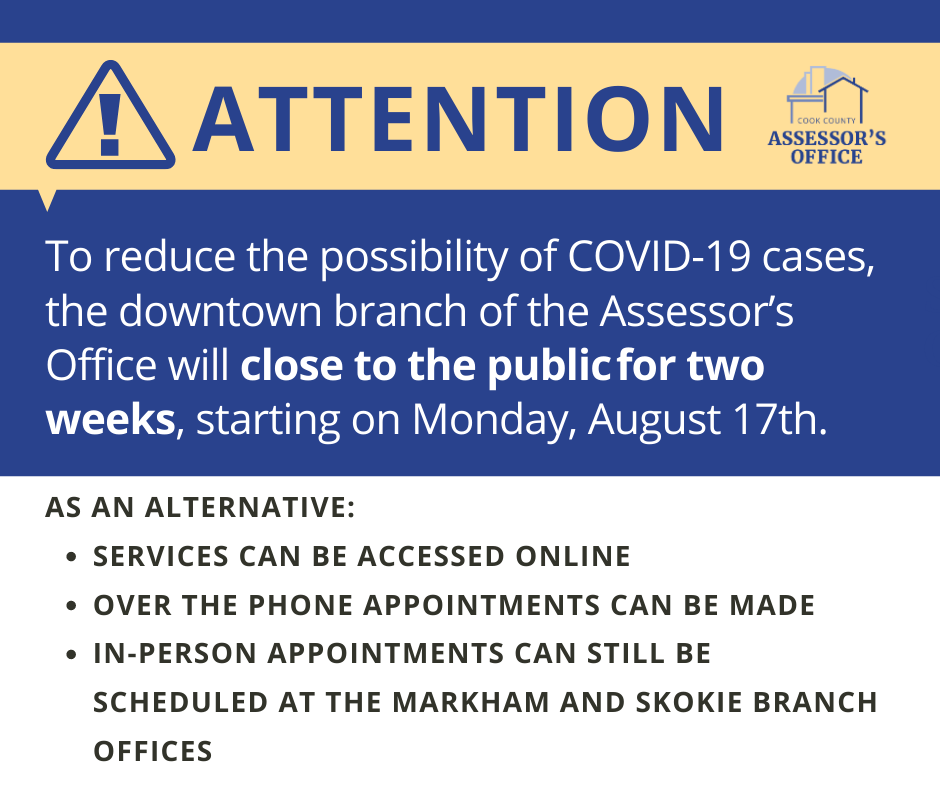Downtown Branch of Cook County Assessor's Office Temporarily Closed
- Details
- Category: Constituent Services
To reduce the possibility of COVID-19 cases, the downtown branch of the Cook County Assessor’s Office is closed to the public for two weeks beginning on Monday, August 17, 2020.
Services are still accessible online. Additionally, over the phone appointments can be scheduled and in-person appointments are still available at the Markham and Skokie branch offices. Regular contact by email, phone and social media is also available. Thank you for your patience and understanding during this time.

7th Annual South Side Pitch
- Details
- Category: Constituent Services

Calling all South Side business owners! Are you interested in a chance to win prizes up to $8,000? Has your business added value to your life, the life of your family, a community, or an industry? If this sounds like you, be sure to apply for the 7th annual South Side Pitch virtual competition by August 24.
Hunter celebrates BIG grants in her district
- Details
- Category: News

CHICAGO – In an effort to provide support to small business owners facing economic hardship as a result of the COVID-19 crisis, State Senator Mattie Hunter (D-Chicago) announced more than $3 million in Business Interruption Grants for hundreds of businesses in her district.
“I am pleased businesses in my district received $3 million in Business Interruption Grants,” Hunter said. “First, businesses in my community were devastated by COVID-19, followed by civil unrest and looting. My heart goes out to them for all the hardships they’ve faced these past several months. People put their whole lives into their businesses, and deserve to see their hard work pay off.”
Hunter reprimands looters, calls for one Chicago instead of two
- Details
- Category: News
 CHICAGO – In light of the recent civil unrest on Chicago’s Magnificent Mile ignited by conflicting reports on a shooting in Englewood, State Senator Mattie Hunter (D-Chicago) called for more transparency and togetherness in her community at a press conference Wednesday.
CHICAGO – In light of the recent civil unrest on Chicago’s Magnificent Mile ignited by conflicting reports on a shooting in Englewood, State Senator Mattie Hunter (D-Chicago) called for more transparency and togetherness in her community at a press conference Wednesday.
“My heart is aching for my community, as the Southside, Westside and downtown areas have been struggling with looting and effects of the pandemic since May,” Hunter said. “The saddest part is – many of the looters are not even from our neighborhoods. They come from out of town, they take what they want, and the underprivileged communities get the blame.“
More Articles …
Page 80 of 143


